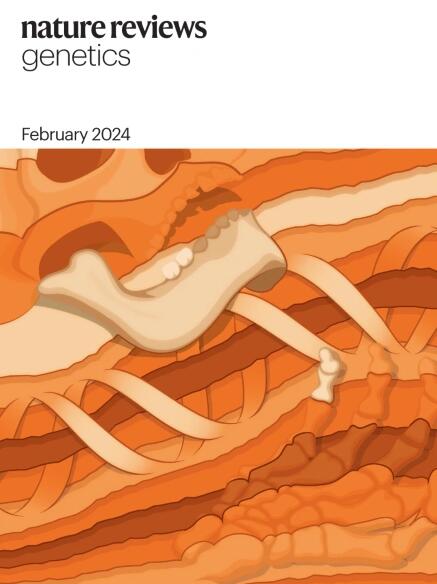X-linked competition — implications for human development and disease
IF 52
1区 生物学
Q1 GENETICS & HEREDITY
引用次数: 0
Abstract
During early mammalian female development, X chromosome inactivation leads to random transcriptional silencing of one of the two X chromosomes. This inactivation is maintained through subsequent cell divisions, leading to intra-individual diversity, whereby cells express either the maternal or paternal X chromosome. Differences in X chromosome sequence content can trigger competitive interactions between clones that may alter organismal development and skew the representation of X-linked sequence variants in a cell-type-specific manner — a recently described phenomenon termed X-linked competition in analogy to existing cell competition paradigms. Skewed representation can define the phenotypic impact of X-linked variants, for example, the manifestation of disease in female carriers of X-linked disease alleles. Here, we review what is currently known about X-linked competition, reflect on what remains to be learnt and map out the implications for X-linked human disease. Differences in X chromosome sequence content can trigger competitive interactions between clones that may alter organismal development and skew the representation of X-linked sequence variants in a cell-type-specific manner. The authors review this recently described phenomenon of X-linked competition and map out the implications for X-linked human diseases.


x连锁竞争——对人类发展和疾病的影响
在哺乳动物早期雌性发育过程中,X染色体失活导致两条X染色体中的一条随机转录沉默。这种失活通过随后的细胞分裂维持,导致个体内多样性,即细胞表达母方或父方的X染色体。X染色体序列内容的差异可以触发克隆之间的竞争性相互作用,这种相互作用可能会改变生物体的发育,并以细胞类型特异性的方式扭曲X连锁序列变异的表现——最近描述的一种现象称为X连锁竞争,类似于现有的细胞竞争范式。偏态表征可以定义x连锁变异的表型影响,例如,x连锁疾病等位基因的女性携带者的疾病表现。在这里,我们回顾了目前已知的关于x连锁竞争的情况,反思了仍有待学习的内容,并绘制了对x连锁人类疾病的影响。
本文章由计算机程序翻译,如有差异,请以英文原文为准。
求助全文
约1分钟内获得全文
求助全文
来源期刊

Nature Reviews Genetics
生物-遗传学
CiteScore
57.40
自引率
0.50%
发文量
113
审稿时长
6-12 weeks
期刊介绍:
At Nature Reviews Genetics, our goal is to be the leading source of reviews and commentaries for the scientific communities we serve. We are dedicated to publishing authoritative articles that are easily accessible to our readers. We believe in enhancing our articles with clear and understandable figures, tables, and other display items. Our aim is to provide an unparalleled service to authors, referees, and readers, and we are committed to maximizing the usefulness and impact of each article we publish.
Within our journal, we publish a range of content including Research Highlights, Comments, Reviews, and Perspectives that are relevant to geneticists and genomicists. With our broad scope, we ensure that the articles we publish reach the widest possible audience.
As part of the Nature Reviews portfolio of journals, we strive to uphold the high standards and reputation associated with this esteemed collection of publications.
 求助内容:
求助内容: 应助结果提醒方式:
应助结果提醒方式:


